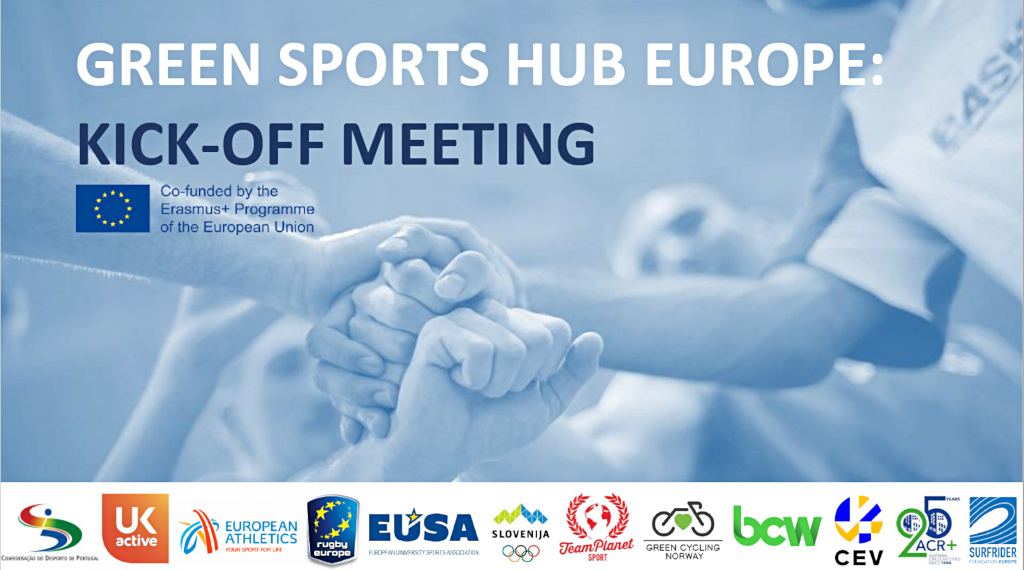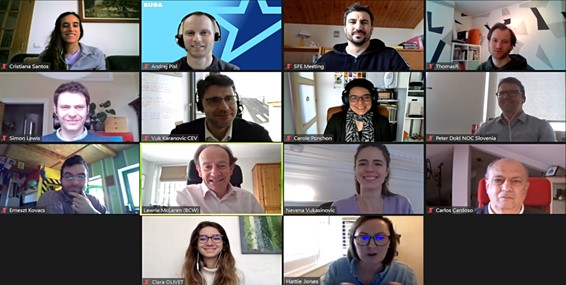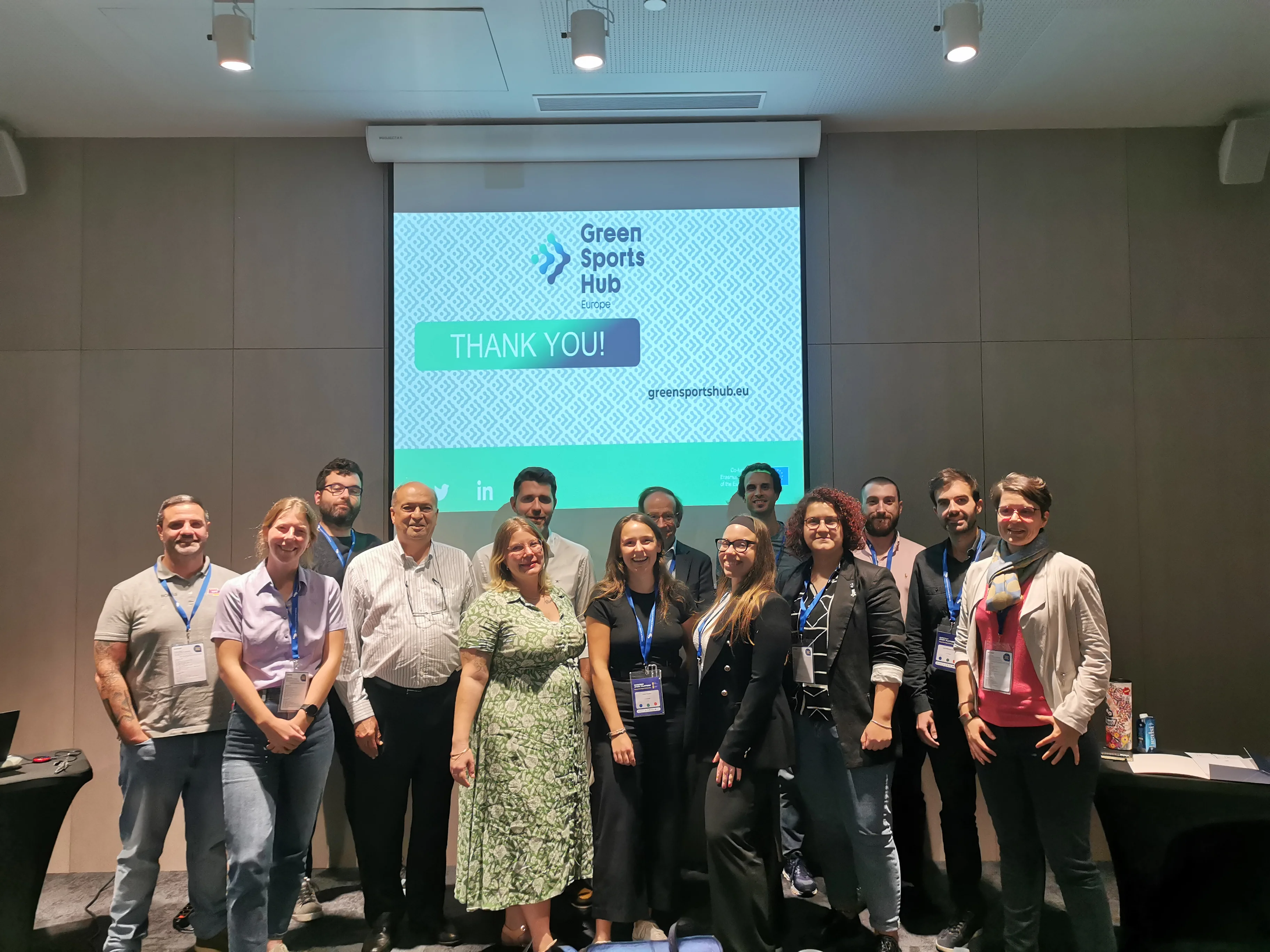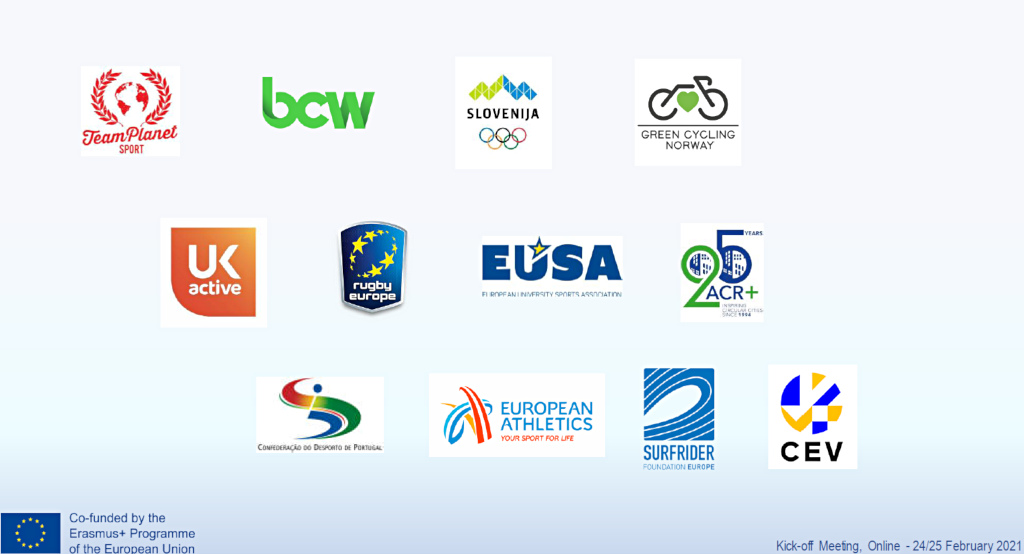Green Sports Hub Europe – GSHE
Making the sports sector sustainable was the main idea behind the Green Sports Hub Europe (GSHE) project, aiming to be a support system for organisations to share knowledge and best practices, so that they can learn from each other and develop.
The three-year project aimed to test the potential of the sports sector as a high-profile & news agenda-driving industry, to be a channel for the societal behavioural change needed to make the European Green Deal a reality by focusing on good governance so that leaders have the knowledge and skills to place environmental sustainability at the heart of their strategy.
Making use of experts, listening to the needs of the sector and equipping sports organisations and their events with the necessary tools, the projects partners looked to translate existing standards on environmental sustainability into concrete action, while aiming for the GSHE approach and tools to become a central component of sports organisation good governance.
The Green Sports Hub Europe (GSHE) project officially launched on February 24 and 25 in 2021, with an online kick-off meeting.
The initiative spaned beyond the initial project partners, so sports organisations, NGOs, academia, experts, event’s organisers, environmental movements, youth and fans are welcome to join the partnership of stakeholders, under the slogan We Play to Renew.
As part of the research and collecting information, an online survey was launched earlier in the year of 2021 on existing barriers in sustainability in sports. On October 7 and 8, the European Volleyball Confederation (CEV) hosted a hybrid project meeting of the Green Sports Hub Europe project, at their headquarters in Luxembourg. The partners discussed the preliminary results of the survey, and future steps and actions to take in the project. After having a few online meetings prior to the live meeting, the in-person meeting was a great opportunity to further engage and strengthen the cooperation between the partners.

From the beginning of 2022, when the partners met online to discuss and define the action plan for the current year, the project was implementing in a great way. Following this meeting, in March, partners gathered in Paris for a hybrid project meeting, focusing on developing a self-assessment tool and discussed on best ways of how to convey a specific and useful content to sport actors. This tool will aimed to help sports organisations to have a better vision of their own sustainable practices and give them adapted suggestions for improvement depending on their precise needs.

Throughout 2022, partners of the project gathered multiple times for meetings, focusing on the development of the self-assessment tool previously discussed in other meetings. In October the first outcomes and resources of the project became available online. The two outputs brought together under this State of Play include a collection, an analysis and sharing of good practices. These tools provide a map of current resources, strategies, and initiatives for the state and status of a green sports organisation and investigate the current barriers sports face while implementing a green sports strategy and employing existing tools.
In November 2022, partners of the project met in London. The two-day meeting in London was hosted by UK Active, focusing on the dissemination of the evaluation tool and to plan a series of test events for 2023, where the theory will be put into practice.

The last Green Sports Hub Europe (GSHE) Project partners meeting took place from the 12th until the 14th of October in Lisbon, Portugal organized by the Portuguese Sports Confederation.
A groundbreaking multiplier sports event accompanied the closing meeting – the European Sports Platform - Equality in Sport Conference organized by the European Non-Governmental Sports Organization (ENGSO).

Over the course of three years, the GSHE project partners worked to develop and implement a wide range of sustainable practices within the sports industry such as the Self-Assesmnet Tool, and Playbook Library. From reducing carbon footprints to conserving resources, the project's efforts aimed to positively impact the environment while setting an example for the global sports community.
The three-year project, funded by the Erasmus+ Programme of the European Union, was coordinated by Surfrider Foundation Europe (FRA), with project partners including Association of Cities and Regions for the Sustainable Management of Resources (BEL), Sports Confederation of Portugal (POR), UKActive (GBR), Green Cycling Norway (NOR), Olympic Committee of Slovenia (SLO), European Volleyball Confederation (LUX), Rugby Europe (FRA), European Athletics Association (SUI) and the EUSA Institute (SLO).
For more information, please see www.greensportshub.eu.
